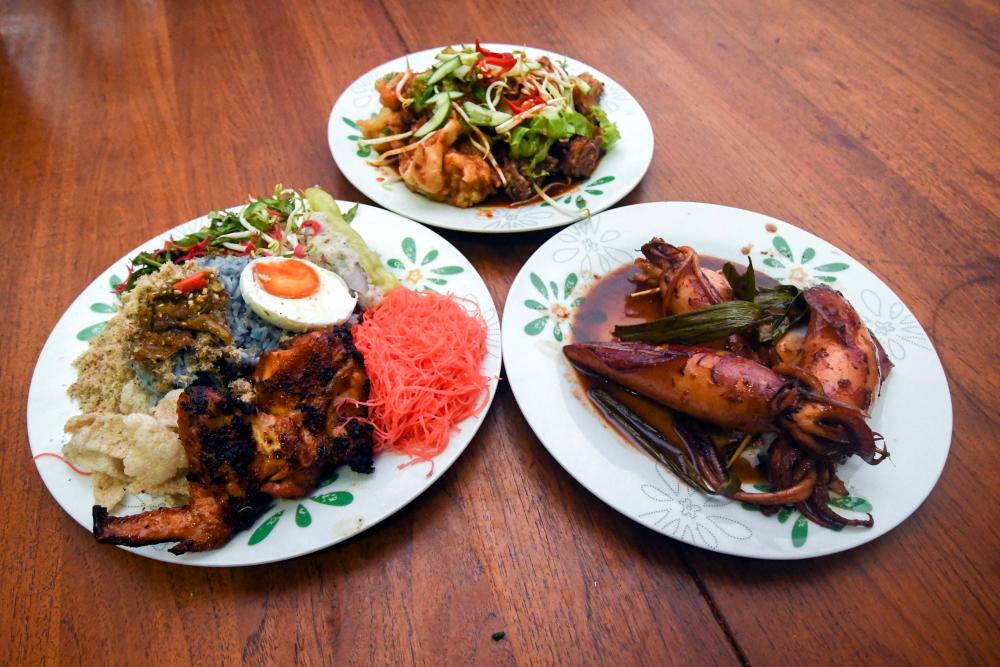PETALING JAYA: Healthy eating is an oft-touted lifestyle advice. Yet, it is seldom heeded.
As a result, non-communicable diseases (NCD) such as diabetes, obesity, cardiovascular diseases as well as some types of cancer and bone conditions have become humanity’s greatest health threat.
Physician Dr Kamalanathan S.P.S. said diabetes and cardiovascular diseases are among the biggest health problems today.
Recent data shows that diabetes cases have reached alarming levels. For instance, 50% of Americans are diabetic or pre-diabetic, while 16% to 25% are insulin resistant.
Data released in conjunction with World Diabetes Day in November last year showed 1.7 million adults in Malaysia have diabetes. That accounts for 8.1% of the adult population.
Cardiovascular diseases take 17.9 million lives worldwide each year, making it the leading cause of death globally, according to the World Health Organisation.
However, there are ways to avoid these lifestyle diseases, and it is as simple as eating healthy.
Kamalanathan’s advice is to reduce the consumption of refined foods and carbohydrates such as rice and bread, that contain high levels of sugar, salt and fat, while carbohydrates are converted into sugar in the body.
This leads to weight gain, diabetes, heart diseases and even some form of cancers.
Kamalanathan added that while a low-carbohydrate diet is recommended to help maintain a healthy life, those who are already diabetic should adopt a zero-carbohydrate regimen.
Snacking between meals is another habit to avoid.
“Every time food enters the stomach, the pancreas reacts by pumping out insulin,” Kamalanathan explained.
Frequent intake of food produces more insulin and an excessive amount of the hormone goes into the bloodstream, a condition called hyperinsulinemia, which is associated with Type 2 diabetes.
“This insulin encourages the conversion of sugar to fat through a process called lipogenesis. This promotes obesity.”
Diets rich in carbohydrates may also lead to hyperinsulinemia.
Kamalanathan said insulin resistance, that is mainly caused by obesity and lack of physical activity, is responsible for 46% of coronary arterial diseases in non-diabetics.
He said vegetables are ideal for those on a low-carbohydrate diet.
“They contain a lot of fibre, which keeps your stomach full. Whole plant-based foods are important. The microbiome in the gut feeds on the soluble and insoluble fibre that we consume from
plant-based foods.”
However, it is different with fruits. While they are also healthy, excessive amounts of fruit in the diet can be detrimental to health.
Kamalanathan pointed out that 55% of the content of most fruits is fructose, an excessive amount of which causes fatty liver disease.
Citing research by Japanese cell biologist Dr Yoshinori Ohsumi, he said one should fast monthly or weekly to avoid liver diseases.
“Those who have diseases must fast for at least 16 to 18 hours every day and have their last meal of the day at 7pm. You may skip breakfast and start lunch at noon.”
He said fructose also raises the level of uric acid in the body, leading to gout and kidney stones, apart from precipitating hypertension. Too much fructose in the body also impairs memory.
“Fructose is also an energy source for cancer cells, helping them to thrive and proliferate very well in the body,” Kamalanathan said, adding that many NCD can be avoided with a change in lifestyle.
“Losing weight and fasting is one way to go. When we fast, the body goes into a state of autophagy, a condition where excess fat is broken down and used by the body.”
He noted that many religious practises can also help the body recuperate.
He lamented the fact that over the centuries, eating had been turned from a way to ensure sustenance into a pastime.
“In the process, food has turned ‘poisonous’.”
But it does not have to be that way. Quoting advice by the Father of Medicine, Hippocrates, Kamalanathan said we should “let thy food be thy medicine and medicine be thy food”.














